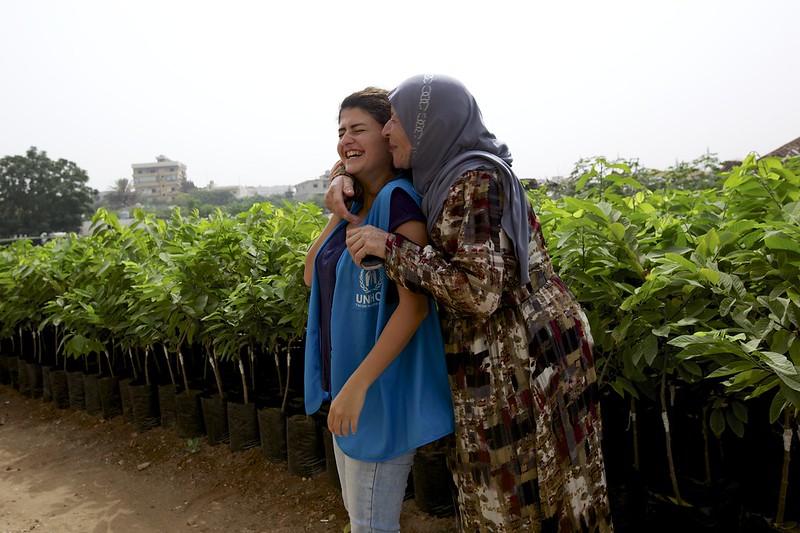Elderly Poverty in Lebanon
 In 2023, Lebanon witnessed another wave of young professionals, medical staff and academics leaving the country. This mass exodus exacerbated an already dire situation, with 44% of the population now living in poverty. The country’s economic crisis, characterized by a devalued currency, inadequate health care services and high unemployment rates, has particularly impacted its elderly citizens. As the largest elderly population in the Middle East, many are forced to continue working beyond the age of 60, often without social protections or pensions, further increasing elderly poverty in Lebanon.
In 2023, Lebanon witnessed another wave of young professionals, medical staff and academics leaving the country. This mass exodus exacerbated an already dire situation, with 44% of the population now living in poverty. The country’s economic crisis, characterized by a devalued currency, inadequate health care services and high unemployment rates, has particularly impacted its elderly citizens. As the largest elderly population in the Middle East, many are forced to continue working beyond the age of 60, often without social protections or pensions, further increasing elderly poverty in Lebanon.
Lebanon’s Financial Crisis
The World Bank has labeled Lebanon’s financial crisis as one of the most severe crisis episodes globally since the mid-nineteenth century. The crisis, which began with a complete financial meltdown in 2019, has left banks unable to pay depositors in dollars, enforcing informal capital controls that restrict withdrawals to limited amounts at heavily discounted exchange rates. Since then, the Lebanese currency has plummeted from 1,500 to the dollar pre-crisis to about 94,000 in May 2023, peaking at more than 100,000 in March. Lebanon’s economic struggles have compounded due to significant political turmoil and disasters, including the devastating explosion at Beirut’s port on Aug. 4, 2020 and recent Israeli strikes on civilian areas in southern Lebanon.
Brain Drain
The crisis in Lebanon has triggered a “brain drain” as disillusioned educated youth and professionals emigrate in search of better opportunities abroad. This exodus is sharply felt in the health care and education sectors, jeopardizing the quality and availability of essential services for the wider population. In 2021 alone, nearly 80,000 Lebanese left the country. The departure of skilled individuals in such large numbers is impeding economic recovery and weakening the infrastructure of public services, intensifying the nation’s broader crisis. Projections reveal that between 2020 and 2050, the number of people aged 60 and over in Lebanon will double, while the young population is expected to decline by about 33%.
Health Care Access
The elderly constitute almost half of the total population with disabilities in Lebanon and the leading causes for disability among both older men and women, with kidney diseases, sense organ diseases and diabetes being the leading causes of disability among both older men and women. These conditions require regular access to essential drugs and services. However, Lebanon’s financial crisis, worsened by the pandemic, has left its health care sector struggling to provide affordable services to its impoverished population. The elderly, who most need regular health care services, face significant challenges due to a lack of health insurance, soaring medication prices and shortages of medical personnel. A study by HelpAge reveals that many elderly individuals, unable to afford their prescribed medications, are deliberately reducing or stopping their use, further endangering their health and impacting elderly poverty in Lebanon.
Pensions and Social Protection
Lebanon ranks among just 16 countries globally without a pension scheme for private-sector workers. As a result, the majority of workers—55% of whom are informally employed—lack any social insurance coverage. Due to the banking crisis, lifetime savings have become inaccessible and continue to lose value as the local currency deteriorates. This financial instability forces many elderly men to work well beyond the official retirement age, compromising their physical and mental health, as the absence of a pension system leaves them without a safety net.
NGO Efforts
Without broader government reforms in Lebanon, sustainable recovery and reconstruction remain unlikely and the social and economic situation will likely continue to deteriorate. In the meantime, many NGOs and charities are performing crucial work to alleviate some of the hardships faced by the elderly population. Amel association, which was created in response to the atrocities of the Lebanese civil war and the Israeli aggression in southern Lebanon, is one example of an organization working on advancing the rights of older people in Lebanon ensuring they can lead dignified, safe and healthy lives.
With a focus on ‘defending a culture of solidarity rather than charity,’ Amel offers many essential services, including psychosocial support, to the vulnerable elderly population. In collaboration with HelpAge International, it gives the elderly access to activities designed to improve their psychological well-being, such as group counseling, peer-to-peer support, recreation and social events. This is done through 32 centers throughout the country, six mobile clinics, two mobile education units and a mobile protection unit. As these inspiring efforts continue, it underscores the critical need for systemic change to address the underlying issues and provide lasting relief for Lebanon’s most vulnerable citizens.
Looking Ahead
Lebanon’s economic and social crises have created severe challenges, particularly for the elderly population lacking social protections. The mass emigration of professionals has weakened essential services, further exacerbating the nation’s difficulties. NGOs like the Amel Association play a crucial role in providing immediate support, yet the urgent need for comprehensive government reforms remains clear to ensure sustainable recovery and a reduction in elderly poverty in Lebanon.
– Asma Issa
Asma is based in London, UK and focuses on Politics for The Borgen Project.
Photo: Flickr
